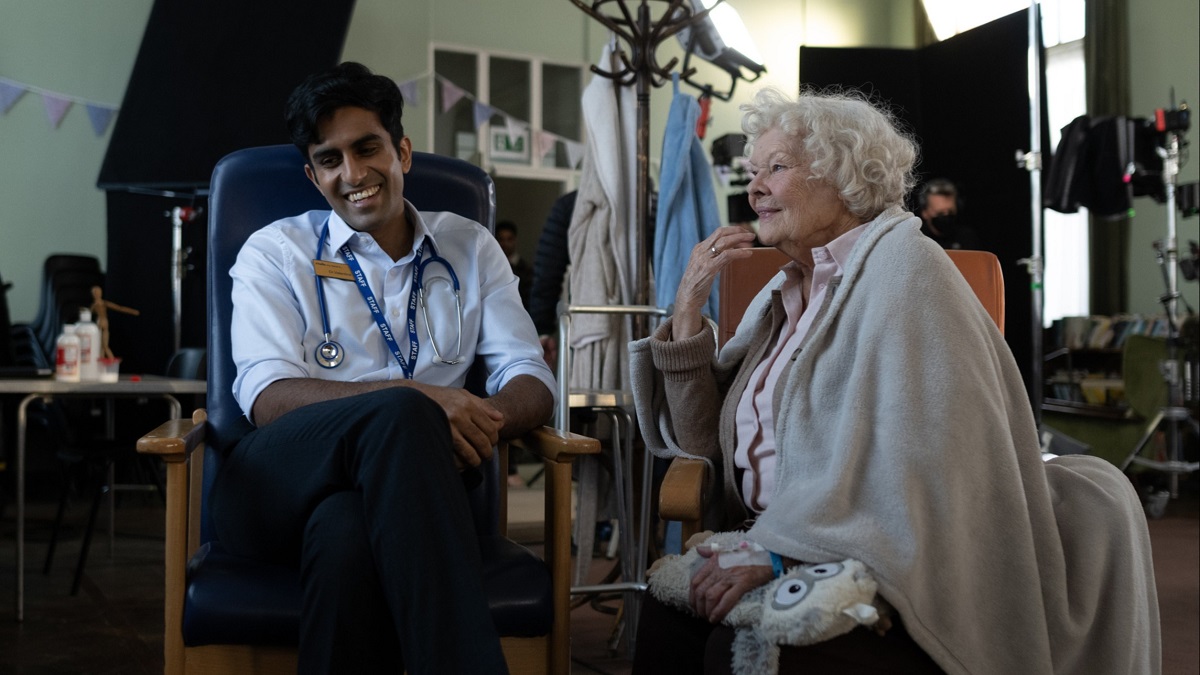Although compassionate, it is hard to understand the key purpose of this film.
What is the purpose of a geriatric ward in a hospital? Is it to provide medical assistance, or is it something more? What should be the purpose?
Allelujah explores the answers to these questions with a plot that deeply contrasts the lives of patients in a small Yorkshire hospital, known as the ‘Beth’, to that of a large institution (shown at the end, but made reference to throughout). As it provides this contrast, the audience is given an appreciation of life inside the geriatric ward, from the perspective of the patients, the nurses, the doctor and the community.
It does this by creating a plot whereby the community is fighting to save the Beth from closure, by hosting fundraising activities, as well as by allowing a film crew to come through to create a video of awareness to support their cause. The ‘inefficiency’ of the small hospital and cost cutting measures are the underlying reasons why government health officials want to close the place, despite its longstanding history.
At first the film is confusing. It switches quickly between scenes introducing the cast members. It starts with the thoughts of the doctor as he starts his working day. Using a voiceover rather than direct speech, we learn why Dr. Valentine (played by 2018 Ian Charleson Award winner Bally Gill) enjoys working at the Beth, and also why with the elderly.
The doctor’s main interactions are with Sister Gilpin, matron of the ward (Jennifer Saunders), and working closely alongside her is Jesse Akele as happy-go-lucky nurse Pinkney. We soon meet health minister Colin (Russell Tovey) whose dad, Joe (David Bradley) is also in the ward. One of the patients, Mary Moss (Judi Dench) plays the role of the outsider of the patients, and Derek Jacobi as Ambrose gives the audience a lot of laughs throughout.
At first with all of the confusing scenes introducing people, I thought that maybe the director is creatively showing us what dementia is like for a patient, having to go from place to place with a lack of familiarity with the setting. Then I soon realised it was just the way director Richard Eyre chose to introduce characters within the story.
The film’s pace soon begins to slow, and it becomes an interesting depiction of who is in control of one’s passing, the public versus the private hospital and cost cutting agendas, what the last moments of one’s life should be and where, and about the true meaning of compassion. Is the nurse or the doctor the most compassionate, or one’s family? Is the focus on the person behind the patient?
Allelujah will appeal to mature audiences, and even more acutely for the older generation. As the film crew explores peoples’ lives, it talks of people making regrettable mistakes, people fearing death, illness, and yet at the same time it truly celebrates everyone’s existence. The film is short and to the point, touches emotions but only lightly, yet leaves you wondering long after.






















